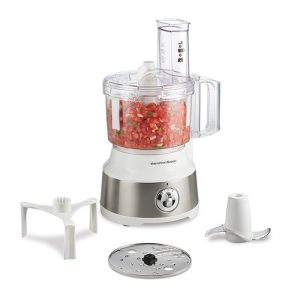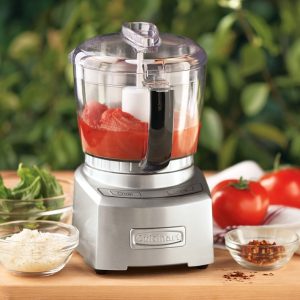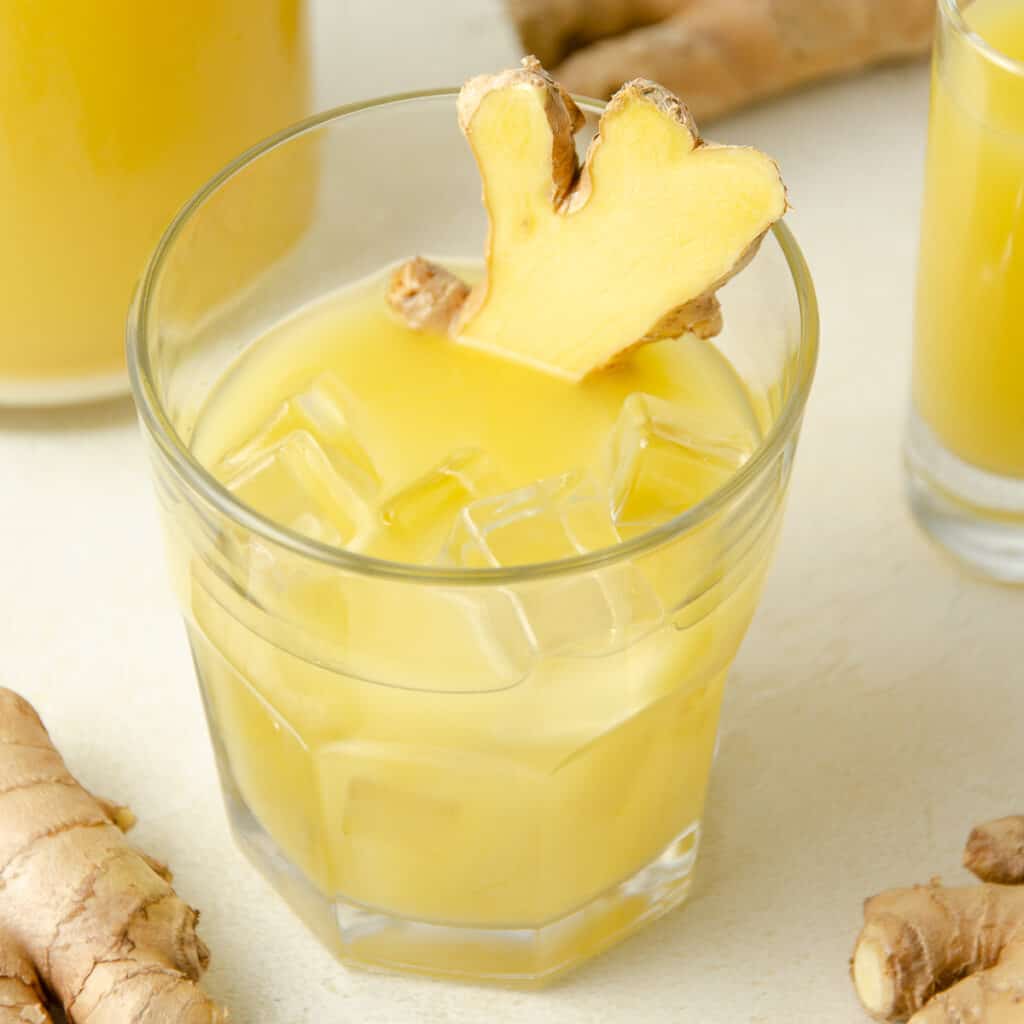
Introduction:
Ginger is a widely appreciated root for its bold flavor and numerous health benefits. Juicing ginger in a juicer can enhance your culinary creations and wellness regimen. Achieving the best results involves selecting the right type of juicer, properly preparing the ginger, and understanding the juicing process. This guide delves into detailed steps and techniques for effectively juicing ginger.
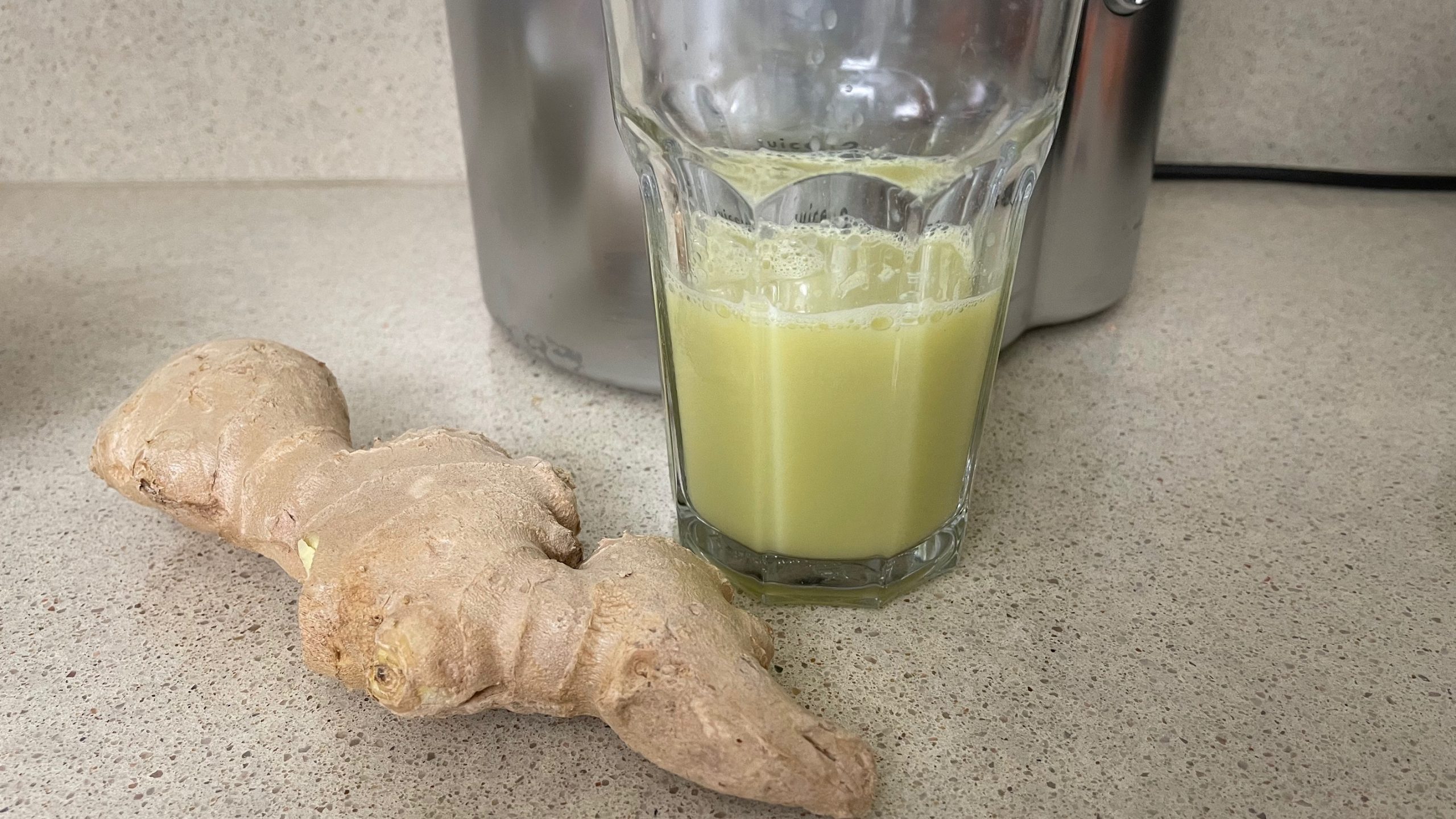
How to Juice Ginger in a Juicer:
What Are the Best Techniques and Tips?
Selecting the Right Juicer:
Which Juicer Types Are Best for Ginger?
Choosing the right juicer is crucial for efficiently extracting ginger juice, maximizing yield, and maintaining nutrient quality.
Centrifugal Juicers:
High-Speed Efficiency:
Quick Extraction: Centrifugal juicers use a rapidly spinning blade to break down ginger and separate the juice from the pulp. These juicers work quickly, making them suitable for fast juicing needs. However, they may not extract as much juice from fibrous roots like ginger compared to other juicer types.
Convenient Handling: Centrifugal juicers are generally user-friendly and straightforward to clean. They are ideal for those who need to juice ginger along with other fruits and vegetables rapidly.
Masticating Juicers:
Slow Juicing Mastery:
Optimal for Fibrous Roots: Masticating juicers, also known as slow or cold press juicers, crush and press ginger slowly to extract juice. They operate at lower speeds, which helps retain more nutrients and results in a higher juice yield, especially for fibrous produce like ginger.
Nutrient Preservation: These juicers are excellent at preserving the enzymes and nutrients in the ginger, as their gentle extraction process minimizes heat and oxidation.
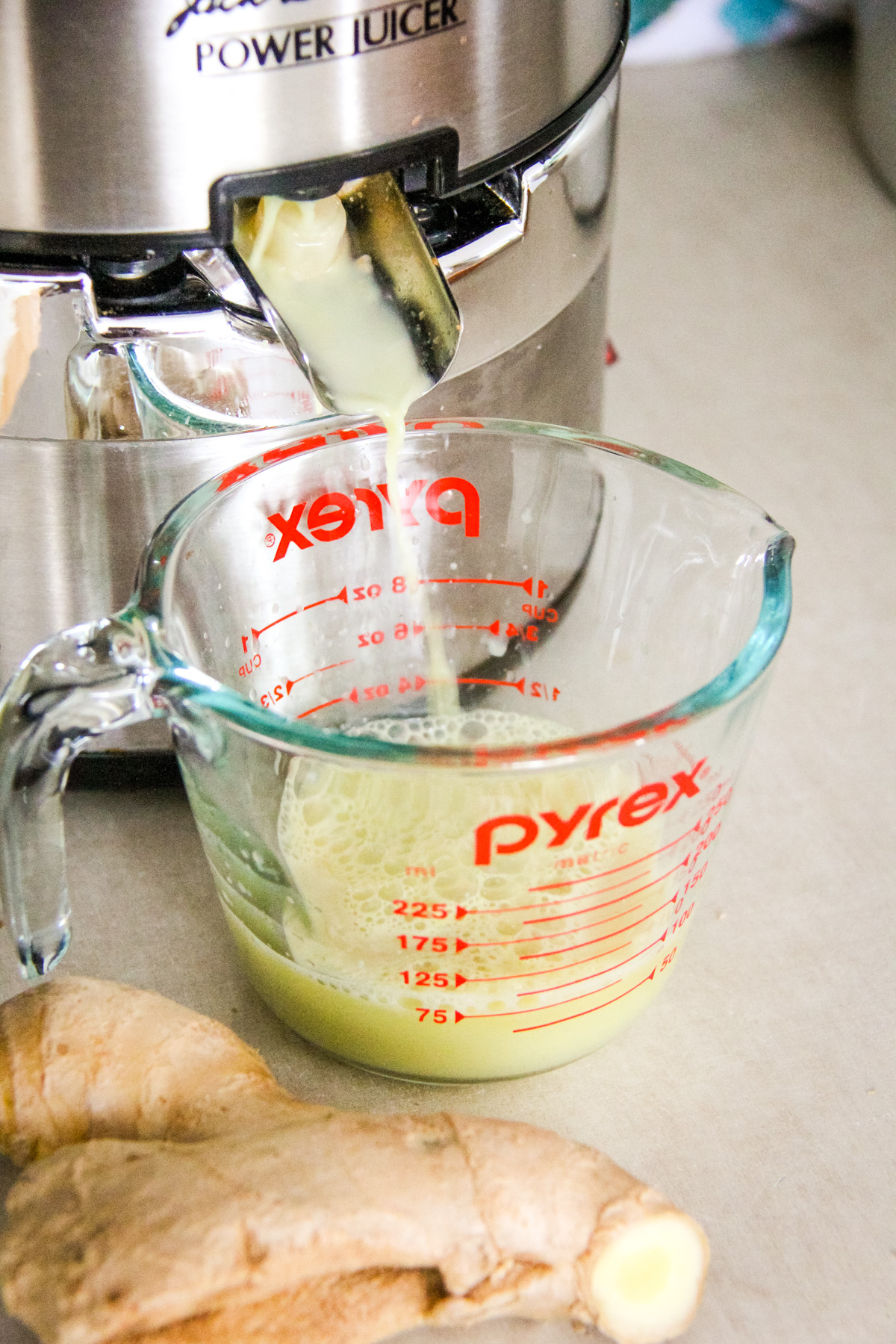
Manual Juicers:
Hands-On Approach:
Portable and Quiet: Manual juicers operate without electricity, using hand-crank mechanisms to extract juice. They are portable and quiet, making them suitable for occasional use or for those who prefer a hands-on approach. Manual juicers may require more effort when juicing fibrous ginger, but they are effective nonetheless.
Preparation Steps:
How Should You Prepare Ginger for Juicing?
Properly preparing ginger ensures smooth juicing and optimal extraction of juice.
Selecting Ginger:
Quality Matters:
Check Freshness: Choose fresh, firm ginger roots with smooth skin. Avoid ginger that feels soft, wrinkled, or has mold spots, as these indicate spoilage and a diminished flavor profile.
Washing:
Clean Thoroughly:
Rinse Well: Wash the ginger under cold water using a vegetable brush to scrub off any dirt and debris. Washing is important to remove impurities that can affect the taste and quality of the juice.
Peeling:
Skin Removal:
Optional Step: Peeling ginger is optional but recommended if the skin is thick or if you prefer a milder flavor. Use the edge of a spoon or a vegetable peeler to gently remove the skin. Peeling can also help reduce the bitterness that sometimes comes from the skin.
Cutting:
Size Adjustment:
Small Pieces: Cut the ginger into smaller pieces that fit easily into your juicer’s feed chute. Smaller pieces ensure the juicer processes the ginger more efficiently and prevents clogging.
Juicing Process:
What Are the Steps to Efficiently Juice Ginger?
Following a systematic process helps you get the most juice out of your ginger root.
Loading the Juicer:
Gradual Feeding:
Prevent Overloading: Gradually feed the ginger pieces into the juicer. Avoid overloading the chute to prevent jamming and ensure each piece is processed thoroughly. Slow and steady feeding maximizes juice yield.
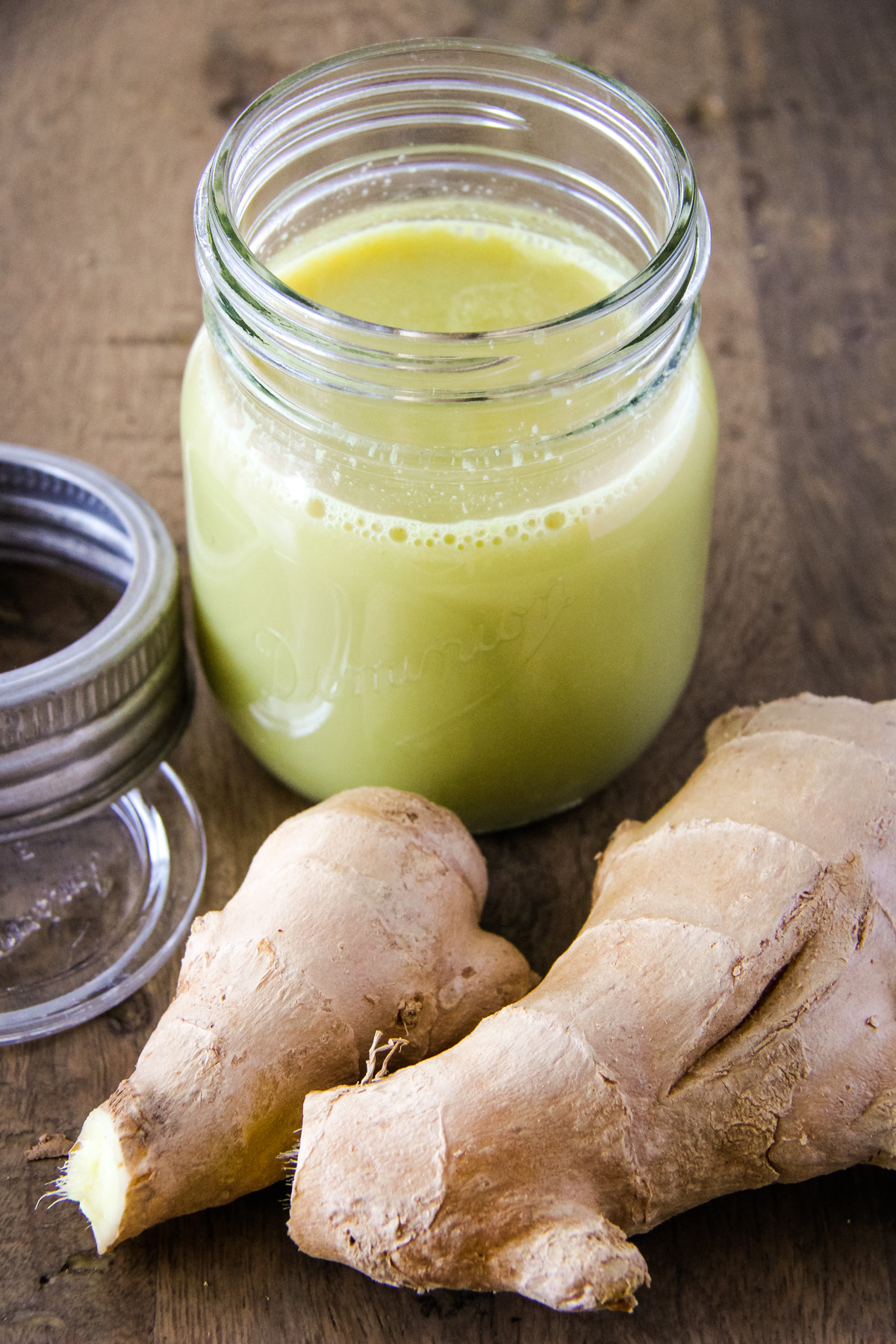
Combining Ingredients:
Creative Blends:
Enhanced Flavors: To create flavorful juice blends, combine ginger with other fruits and vegetables. Ingredients like apples, carrots, oranges, and lemons complement ginger’s robust flavor and enhance the overall juice profile.
Collecting Juice:
Efficient Capture:
Catch Every Drop: Place a clean container under the juicer’s spout to collect the ginger juice. Ensure the container is large enough to hold the expected volume of juice without spilling.
Straining:
Smooth Texture:
Remove Pulp: For a smoother consistency, strain the ginger juice through a fine-mesh sieve or cheesecloth to remove any remaining pulp and fibrous material. Straining ensures the final juice is more palatable and free of texture inconsistencies.
Storage:
Preserving Freshness:
Refrigeration: Store freshly juiced ginger in an airtight container in the refrigerator. Ginger juice can stay fresh for up to five days when properly stored. For longer preservation, consider freezing the juice in ice cube trays for convenient portioning.
Health Benefits:
What Are the Nutritional Benefits of Ginger Juice?
Incorporating ginger juice into your diet offers numerous health advantages.
Anti-Inflammatory:
Reduce Inflammation:
Natural Relief: Ginger contains gingerol and other bioactive compounds with powerful anti-inflammatory properties. Regular consumption of ginger juice can help reduce inflammation and alleviate symptoms associated with chronic inflammatory conditions.
Digestive Aid:
Promote Digestion:
Soothing Effects: Ginger juice stimulates digestive enzymes and promotes gastric motility, making it effective for easing nausea, indigestion, and other digestive issues. It is particularly beneficial for soothing upset stomachs and relieving motion sickness.
Immune Boosting:
Enhance Immunity:
Fight Off Illness: Rich in antioxidants, ginger juice boosts the immune system and helps the body fight off infections and illnesses. Regular intake can contribute to overall health and increase resistance to common colds and flu.
Pain Relief:
Natural Analgesic:
Alleviate Pain: Ginger’s analgesic properties make it effective for relieving various types of pain, including headaches, muscle soreness, and menstrual cramps. Consuming ginger juice regularly can provide natural pain relief without relying on medications.
Circulatory Health:
Improve Circulation:
Cardiovascular Support: Ginger encourages healthy blood circulation, which is crucial for cardiovascular health. Improved circulation helps deliver oxygen and nutrients throughout the body, supporting overall well-being.
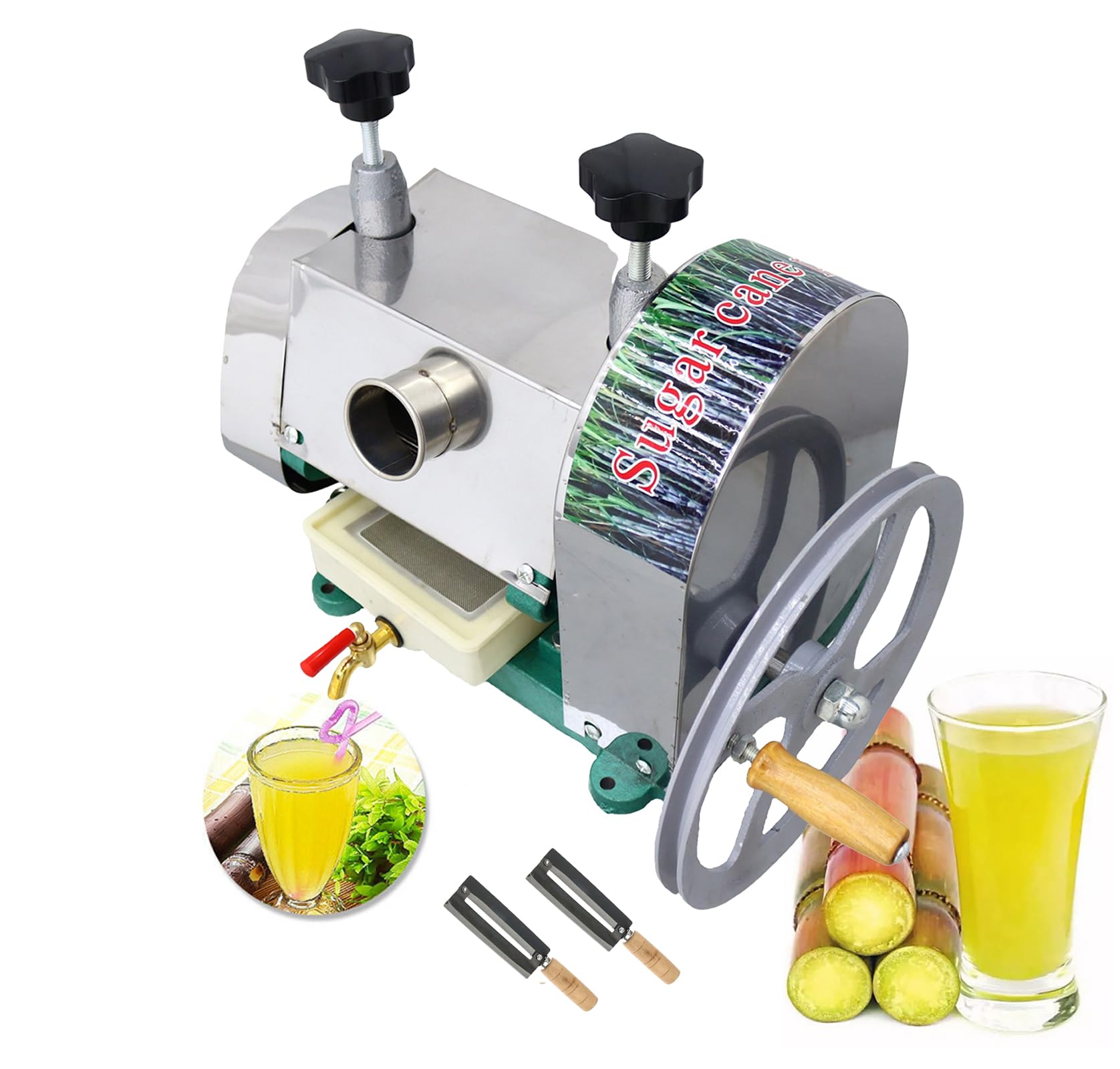
Culinary Uses:
How Can You Incorporate Ginger Juice Into Your Diet?
There are several delicious and creative ways to add ginger juice to your daily diet.
Ginger Shots:
Concentrated Boost:
Quick Energy: Take a small shot of pure ginger juice for a potent dose of nutrients and a quick energy boost. This is particularly beneficial in the morning to kickstart your metabolism and enhance focus.
Smoothie Additive:
Flavor Enhancement:
Spicy Twist: Add a splash of ginger juice to your smoothies for an extra kick of flavor and health benefits. Ginger pairs well with a variety of fruits and vegetables, adding a spicy, invigorating twist to your blends.
Salad Dressings:
Zesty Flavor:
Fresh and Tangy: Incorporate ginger juice into homemade salad dressings for a zesty and refreshing flavor. Mix it with olive oil, lemon juice, honey, and your favorite herbs to create a delicious vinaigrette.
Teas and Beverages:
Soothing Drinks:
Hot and Cold: Add ginger juice to teas, lemonades, or other beverages for a soothing and flavorful drink. Ginger tea is particularly effective for easing sore throats and providing warmth in cold weather.
Cooking Ingredient:
Flavor Infusion:
Culinary Delight: Use ginger juice as an ingredient in marinades, sauces, and soups to infuse dishes with its distinctive flavor. It works especially well in Asian-inspired recipes and barbecue sauces, adding depth and complexity.
Potential Side Effects:
What Should You Watch Out for When Juicing Ginger?
While ginger juice has many benefits, it’s important to be aware of potential side effects.
Digestive Sensitivity:
Moderation is Key:
Ease into It: For individuals with sensitive stomachs, ginger juice may cause mild digestive upset, such as heartburn or diarrhea. Start with small amounts and gradually increase intake to gauge your body’s tolerance.
Blood-Thinning Properties:
Consult Healthcare Providers:
Medication Interference: Ginger has blood-thinning effects, which could interfere with blood-thinning medications. If you are taking such medications, consult your healthcare provider before consuming ginger juice regularly.
Allergic Reactions:
Monitor Symptoms:
Rare Occurrences: Although rare, some people may experience allergic reactions to ginger. Symptoms can include rash, itching, or difficulty breathing. Discontinue use and seek medical advice if you experience any adverse reactions.
Pregnancy Considerations:
Moderated Use:
Consult Your Doctor: Pregnant women should consume ginger juice in moderation, as high amounts can potentially influence pregnancy. Always consult with your healthcare provider to ensure it’s safe for your specific condition.
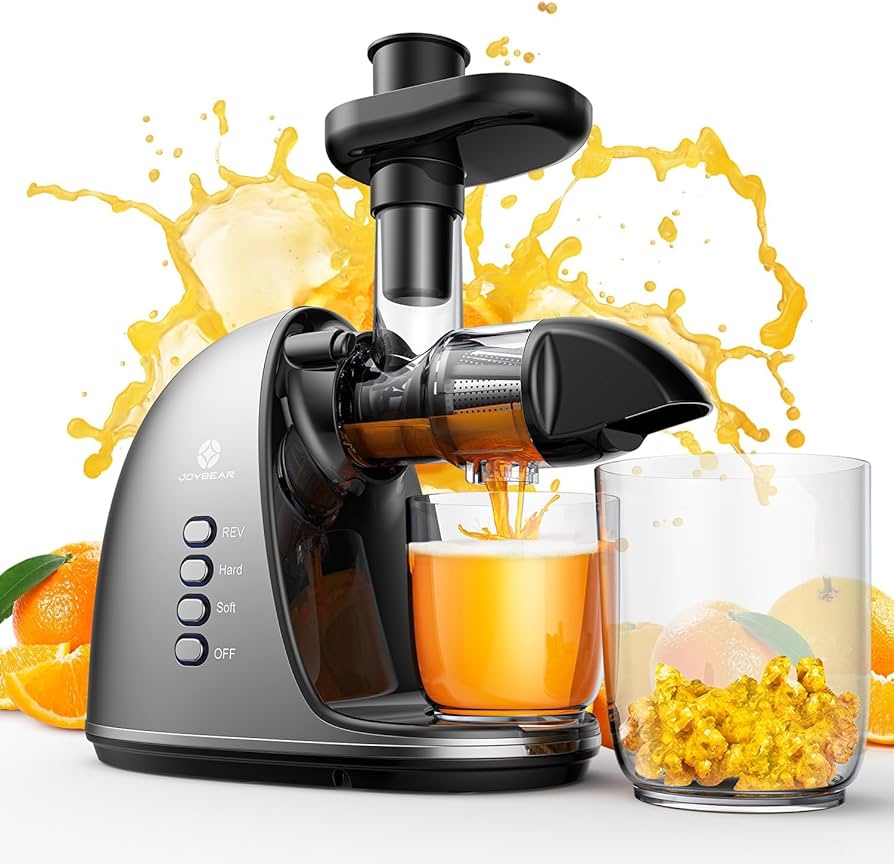
Storage and Preservation:
How Should You Store Ginger Juice Properly?
Proper storage ensures the freshness and quality of ginger juice for longer use.
Refrigeration:
Short-Term Storage:
Airtight Containers: Store ginger juice in an airtight container and refrigerate it. This method preserves the juice’s freshness for up to five days. Ensure the container is properly sealed to prevent oxidation and contamination.
Freezing:
Long-Term Storage:
Ice Cube Trays: For longer storage, freeze ginger juice in ice cube trays. Once frozen, transfer the cubes to a freezer-safe bag or container. This method makes it easy to use small portions as needed without thawing the entire batch.
Quality Check:
Monitor Freshness:
Check Regularly: Regularly check the stored ginger juice for signs of spoilage, such as an off smell or change in color. Discard any juice that appears spoiled to avoid potential health risks.
Conclusion
Juicing ginger with the right techniques and tools brings out its numerous health benefits and culinary uses. Selecting the appropriate juicer, preparing the ginger properly, and following a systematic juicing process ensures you get the most out of this powerful root. From its anti-inflammatory and digestive benefits to its versatility in shots, smoothies, teas, and marinades, ginger juice is a valuable addition to any diet. Being aware of potential side effects and adopting proper storage practices ensures you enjoy fresh and beneficial ginger juice conveniently and safely.

